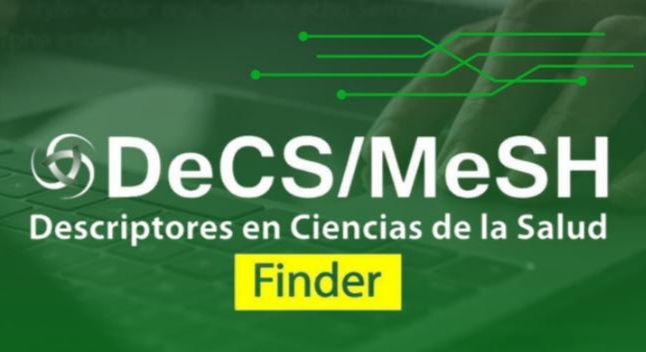Evaluación del niño febril. Un escenario común. Infección bacteriana severa y gérmenes: II parte
Palabras clave:
Fiebre, lactante, infante, infecciones bacterianas/diagnósticoResumen
Se realizó un estudio descriptivo prospectivo siendo el universo 718 niños febriles menores de 36 meses, sin causa aparente de su proceso febril asistieron al Cuerpo de Guardia del Hospital Docente "Aleida Fernández Chardiet" en un período de 12 meses con el objetivo de identificar el comportamiento de los niños febriles. Los gérmenes más frecuentemente aislados resultaron ser Echerichia Coli, Proteus, Klebsiella y Estafilococos Aureus; resultó más frecuente en el grupo de 29-59 días el Estreptococo B. hemolítico del grupo B y en edades posteriores la Echerichia Colique causó la mayoría de las Infecciones del Tracto Urinario, el Hemophilus Influinzae y Estreptococo produjeron casi la totalidad de las Meningoencefalitis Bacteriana, el Estafilococo la Bacteriemia y Neumonía. Se sugiere hacer en otras regiones del país estudios de este tipo y divulgar sus resultados.Descargas
Citas
Sectisth MD. Management of the febrile infant. Pediatric Annals. 1996; 25 (11): 608-13.
Poweel KP. Fiebre sin foco infeccioso evidente. En: Nelson WE, editor. Tratado de Pediatría. Barcelona: Interamericans; 1997.p. 874-81.
Powell KP. Sepsis y shock. En: Nelson WE, editor. Tratado de Pediatría. Barcelona: Interamericans; 1997.p. 881 -5.
Bonadio WA. Evaluation and management of serious bacterial infections in the febrile young infant. Pediatric Infect Dis J 1990; 9 (12): 905-12.
Díaz Alvarez M, Moreno Vázquez O, Fernández de la Paz MT, Martínez Canalejo H. Eficacia de la aplicación de criterios de bajo riesgo de infección bacteriana severa en recién nacidos febriles. Revista Cubana de Pediatría. 1996; 68 (3): 143 - 51.
Díaz Alvarez M, Fernández de la Paz MT, Moreno Vázquez O, Piloto Sendin R, Arango MI, Díaz Alvarez J. Infección bacteriana severa en recién nacidos febriles sin signos de focalización. Revista Cubana de Pediatría. 1995; 67 (2) : 79-87.
Díaz Alvarez M, Fernández de la Paz MT, Moreno Vázquez O. Protocolo de atención del recién nacido febril sin signos de focalización. Revista Cubana de Pediatría. 1997; 69 (3-4): 169 - 7.
Mc Carthy PL, Sznajderman SD, Lustman-Findling K, Baron MA, Fink HD, Czarkowski N, et al. Mothers ccinical judigment: a randomized. trial of the acute iliness observation seales. The Journal of Pediatrics. 1990; 116 (2): 200 - 6.
Baker MD, Bell LM, Avner JR. Outpatien management whitout antibiotics of fever in selected Infants. The New England Journal of Medicine. 1993; 329 (20): 1437-41.
Jaskiewiez JA, Mc Carthy CA. Evaluation and management of the febril infant 60 days of age or younger. Pediatric Annals. 1993; 22 (8): 477-83.
Bachur R, Caputo GL. Bacteremia and meningitis among infants with urinary tract infections. Pediatric Emergency Care. 1995; 11 (5): 280-4.
Haper MB, Fisher GR. Occult bacteriemia in the month old to 3 year age group. Pediatric Annals. 1993; 22 (8): 484-93.
Baraff LS, Bass JW, Fleisher GR, Klein JO, McCracken GH, Poweel KR, et al. Practice guideline for the management of infants and children 0 to 36 months of age with fever without source. Annals of Emergency Medicine. 1993; 22 (7): 109-20.
Fleischer GR, Rosemberg N, Vinci R, Steinger J, Powell K, Christy C, et al. Intramuscular versus oral antibiotic theraphy for the prevention of meningitis and other bacterial sequelae in young, febrile children at risk for occult bacteremia. The Journal of Pediatrics. 1994; 124 (4): 504-12.
Cómo citar
Número
Sección
Licencia
Derechos de autor 1970 Alicia Alvarez Rodríguez, Beatriz Rivero Falcón, Juan Carlos Barrios Rodriguez

Esta obra está bajo una licencia internacional Creative Commons Atribución 4.0.













